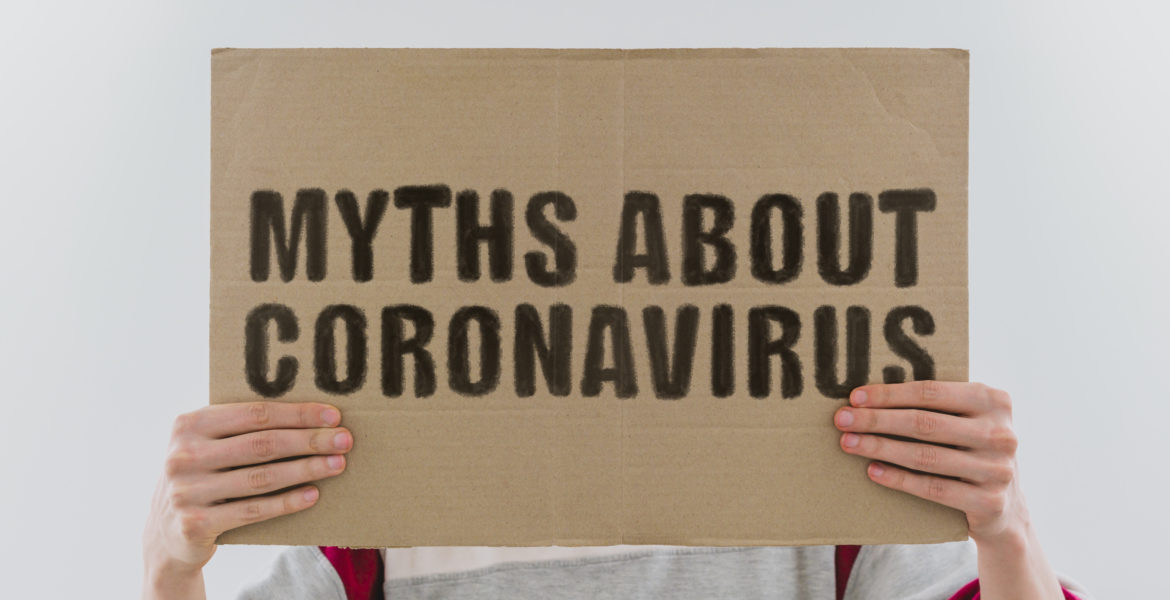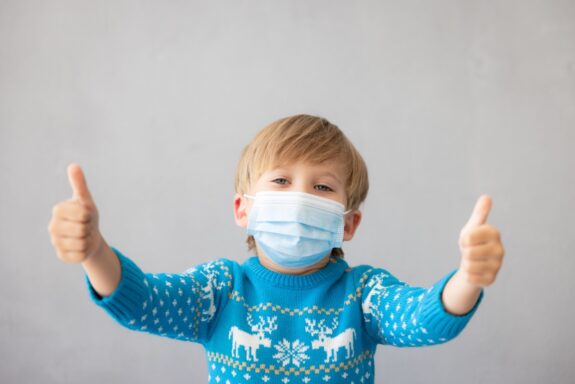
COVID 19 has turned our world upside down and we continue to learn more about this virus each day. Unfortunately, there is a great deal of misinformation and confusion regarding COVID 19, so I wanted to go over a few common myths that I have heard and clear them up with the facts.
Myth #1: “If I don’t have a fever, then it is not COVID-19”.
Not all patients with COVID-19 have a fever. There is a long list of symptoms that may be present in a patient with COVID-19. The most common symptoms are fever/chills, cough, shortness of breath, fatigue, muscle/body aches, headache, loss of taste/smell, sore throat, congestion/runny nose, nausea/vomiting, and diarrhea. Some patients will have all of these symptoms, and some patients will only have one of two of these symptoms. A common thing I hear in clinic from patients who test positive for COVID-19 is “I thought it was just my allergies”. Moral of the story: if you have any of the symptoms listed, you may have COVID-19. In addition to this, some patients with COVID-19 have no symptoms (asymptomatic), however will still be contagious.
Myth #2: “Children cannot get/spread COVID-19”.
Infants and children can absolutely contract COVID-19. Some children will have the same symptoms as adults (see above), while others will have little to no symptoms. Like adults, infants and children with COVID-19 are contagious for 10 days from the start of symptoms. In addition to this, like adults, children can be “asymptomatic carriers” and still spread COVID-19 even if symptoms are not present. It is very important to keep sick children home at this time in order to slow the spread of the coronavirus. Infants and children who have been exposed to someone with COVID-19 need to quarantine at home for 14 days, even if no symptoms are present.
Myth #3: “After I was exposed to someone I do not need to quarantine unless I develop symptoms”.
This is one of the biggest reasons that we continue to see an increase in cases of COVID-19. After an exposure to someone with COVID-19 the exposed person needs to quarantine at home for 14 days, even if no symptoms are present. At the end of the 14 days the quarantine can be discontinued if the exposed person did not develop any symptoms during the quarantine. If the exposed person develops symptoms, the exposed person should isolate away from others for 10 days from the start of symptoms. The exposed person may also be tested for COVID-19 if symptoms develop. There is a big difference between isolation and quarantine! If you are in “isolation” you have contracted COVID-19 and need to isolate from others for 10 days. If you are in “quarantine” you have been exposed to someone with COVID-19 and need to quarantine from others for 14 days. The CDC has released guidelines to shorten the 14-day quarantine: learn more about that here.
Myth #4: “I am only contagious if I am symptomatic”.
The CDC states that patients with COVID-19 are considered contagious two days before the start of symptoms (or two days prior to specimen collection for tests in asymptomatic patients). It is reckless to rely on the presence of symptoms in order to determine if you could spread COVID 19.
Myth #5: “After testing positive for COVID-19, I need a negative test to end my isolation”.
A person who tested positive for COVID-19 is considered contagious for 10 days from the start of symptoms. The isolation can be discontinued after 10 days have passed from the start of symptoms if the patient is at least 24 hours fever-free and symptoms are improving. If an asymptomatic patient tests positive for COVID-19, the isolation can be discontinued after 10 days have passed since the specimen collection for the COVID-19 test. After a positive test for COVID-19, a patient can continue to test positive for up to 12 weeks, therefore retesting someone for COVID-19 <90 days after initial positive COVID-19 test is not recommended.
I hope this article was informative and provided useful guidance regarding common questions and concerns related to COVID-19.
Please refer to the CDC website for more information regarding COVID 19!
Little Spurs Pediatric Urgent Care opened in 2006 in San Antonio, Texas. With multiple locations in San Antonio and Dallas, they are open seven days a week with extended evening hours and see walk-in patients or through an online check-in system. They accept most commercial insurance and Medicaid plans. More information about Little Spurs Pediatric Urgent Care can be found at www.littlespurspedi.com.



